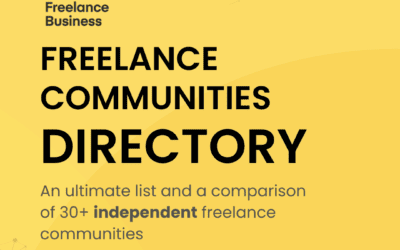In today’s fast-paced business landscape, hiring the right talent is crucial for maintaining a competitive edge. When faced with the decision to bring in new personnel, companies often find themselves at a crossroads between hiring a full-time employee or engaging a freelancer. While both options have their merits, this argument will demonstrate why hiring a freelancer can be a faster and more efficient choice for meeting short-term project needs. Let’s see the key advantages of hiring a freelancer over a full-time employee:
1. Because hiring a freelancer can be faster.
First and foremost, the speed of recruitment is a significant advantage when considering hiring a freelancer. The traditional process of recruiting a full-time employee can be a time-consuming endeavour, involving job postings, resume screening, interviews, and background checks. This process could take weeks or even months to complete, resulting in valuable time lost, particularly when projects require immediate attention.
On the contrary, hiring a freelancer can be accomplished much faster. With the vast talent pool available on various freelancing platforms and online marketplaces, companies can quickly browse through profiles, identify suitable candidates, and initiate discussions in a matter of hours or days. Freelancers are accustomed to fast-paced projects and can often begin working on short notice, ensuring a swift start to the project.
2. Because they provide high-quality work.
Among freelancers, there are many talented and professional creatives, and the best ones often prefer to work alone, so they don’t need to coordinate with others and can choose their projects. Today, it’s not uncommon for the most in-demand freelancers to work for large clients that would have been unthinkable not to use an agency for the job. Even more exciting is that freelancers have made high-quality creative work accessible to smaller companies and businesses, which a few years ago could only be achieved through renowned agencies, making it unaffordable for them.
This has made the creative industry a more interesting and vibrant environment, and now every company has the opportunity to access professional assistance.
3. Because they are intrinsically motivated.
Freelance creatives are solely responsible for their work, and they work from the heart, taking ownership of their tasks. When a company starts working with a freelancer, they know that the specialist is accountable for his own credibility and reputation, so he will do his best to ensure the project’s success. Taking on the job also means that he will be maximally motivated, as he will only say yes to the assignment that he is actually interested in.
4. Because they stick to their word.
Freelancers quickly learn to optimise their time and work with discipline, since they work alone or in small teams, reducing the likelihood of unexpected delays. Clients also need to get used to this: it is essential for them to keep their own promises (providing feedback and background materials as promised, for example).
5. Because they are often going the extra mile.
Freelancers know that consistently delivering excellent work can secure long-term clients. Unlike employees whose main goal is to satisfy their bosses, freelancers are “dependent” on their clients. As a result, they often make proactive suggestions beyond their designated tasks. If a client is open to building a partnership and not just looking for an “executor,” they can gain significant business value from collaborating with an independent expert, receiving diverse feedback, advice, and ideas.
6. Because they are flexible.
Freelancers are not instantly available at all times since they have full control over their schedule and often enjoy their flexibility. However, this comes with advantages: an overnight owl may be impossible to reach for a 9 a.m. meeting, but they can complete a task assigned in the afternoon by the next morning, and the client can review it over morning coffee.
However, availability is always an option for them: as masters of their own time, they can work a lot in a short period, even on weekends or overtime if they see it as worthwhile.
7. Because they are experienced and efficient.
The majority of freelancers have tried different types of employment and have worked in various places. But this also applies to young titans who quickly gather experience in various aspects of life and business through freelancing. They have to solve many things on their own, and this experience can be useful for clients.
8. Because they have specialised expertise.
A freelancer never has two identical projects; they learn something new from each new job. Besides their main area of expertise, they usually have knowledge in other areas to some extent, which can often provide unexpected advantages for the client.
9. Because they have a developmental and innovative impact on their environment.
This diverse and colourful experience can be beneficial for the client in ways that may not be immediately apparent. That’s why it’s worth experimenting with freelancers: you can learn useful things about our own operations and company through such collaboration. Their feedback and insights can be more direct and profound. In their own work, they are almost obligated to stay up-to-date with the latest trends, and this mindset can have a positive impact on their clients’ operations as well.
10. Because they manage their projects well.
For freelancers, prioritisation, client communication, and task management are constant challenges performed at an artistic level, which can provide a sense of security for clients. Of course, not all freelancers are equally skilled in this aspect, and many collaborations fail because there isn’t a third external party in the system responsible for ensuring that the project progresses as smoothly as possible, with both the client and the freelancer being happy in the end. This is one of the enduring advantages of agencies, but today there are alternatives in the freelancing world as well. At more and more freelance platforms the freelancer-client relationship is overseen by a dedicated expert project manager, providing a sense of security and convenience for both parties.
These are the 10 reasons why we believe that nowadays every company and business should establish at least one or two freelancer partnerships, as it has the most positive impact on their competitiveness.




